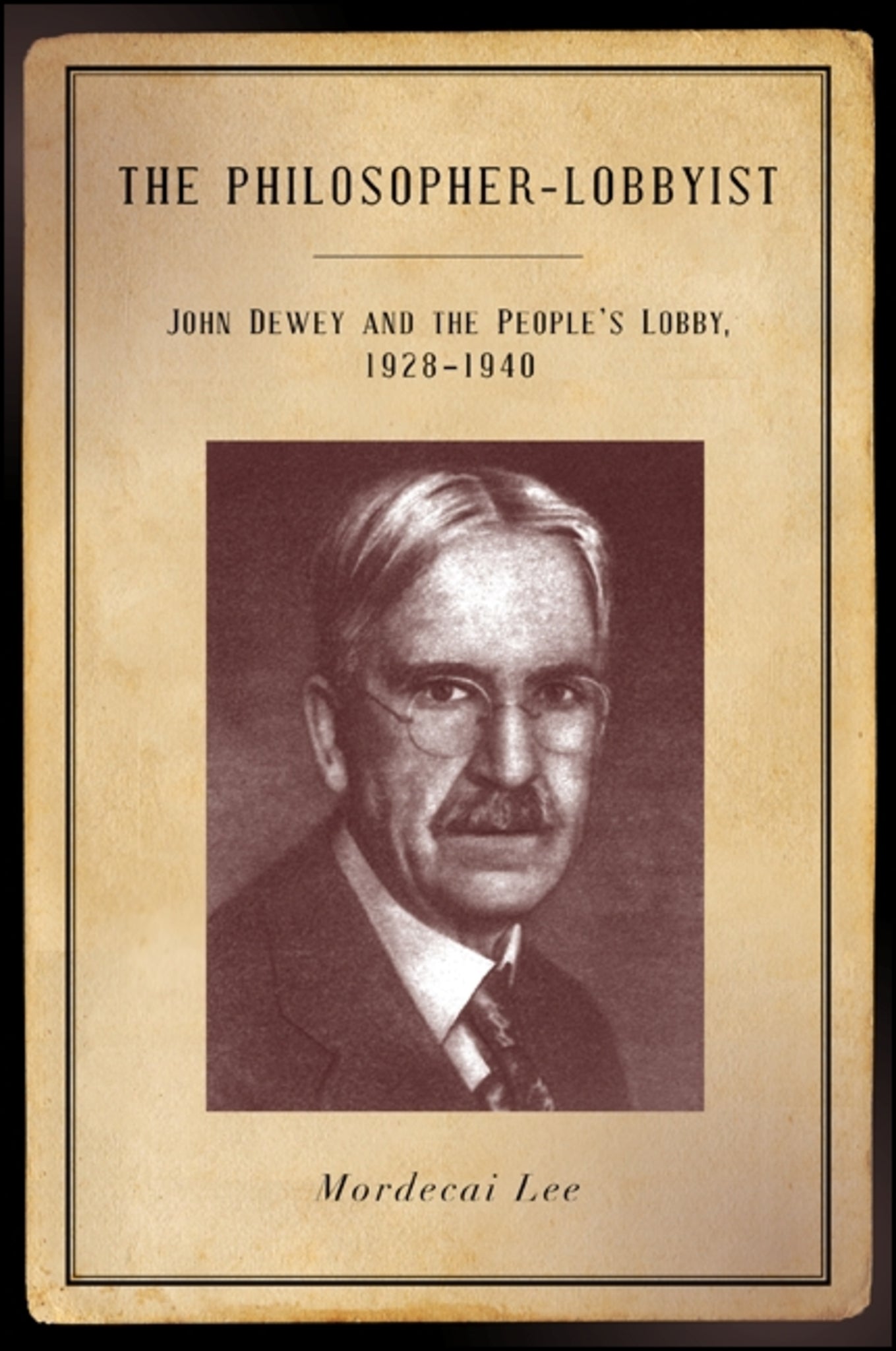We're sorry. An error has occurred
Please cancel or retry.
The Philosopher-Lobbyist

Some error occured while loading the Quick View. Please close the Quick View and try reloading the page.
Couldn't load pickup availability
- Format:
-
02 January 2016

The history of John Dewey's leadership of the progressive People's Lobby.
John Dewey (1859–1952) was a preeminent American philosopher who is remembered today as the founder of what is called child-centered or progressive education. In The Philosopher-Lobbyist, Mordecai Lee tells the largely forgotten story of Dewey's effort to influence public opinion and promote democratic citizenship. Based on Dewey's 1927 book The Public and Its Problems, the People's Lobby was a trailblazing nonprofit agency, an early forerunner of the now common public interest lobbying group. It used multiple forms of mass communication, grassroots organizing, and lobbying to counteract the many special interest groups and lobbies that seemed to be dominating policymaking in Congress and in the White House. During the 1930s, Dewey and the People's Lobby criticized the New Deal as too conservative and championed a social democratic alternative, including a more progressive tax system, government ownership of natural monopolies, and state operation of the railroad system. While its impact on historical developments was small, the story of the People's Lobby is an important reminder of a historical road not traveled and a policy agenda that was not adopted, but could have been.


"The words philosopher and lobbyist are rarely joined by a hyphen as they are in the title of this book … Yet, Mordecai Lee appropriately connects the two words, and the worlds of John Dewey in an illuminating portrayal this brilliant philosopher who sought to not only to ideate, but to advocate for his own grand ideas." — Annals of the University of Bucharest
"…a valuable contribution to the emerging field of non-profit history and activism. Political scientists and philosophers will find it valuable as a guide to both the history of progressive lobbying and as a rare window into what happens when academic specialists work in public policy settings as professionals." — Contemporary Pragmatism
"...Lee weaves together an intriguing historical account of how Dewey as a lobbyist was informed by Dewey as philosopher." — Journal of Public and Nonprofit Affairs
Preface and Acknowledgments
Abbreviations
Introduction
Part I. Inventing the People’s Lobby
1. John Dewey and Benjamin Marsh before the People’s Lobby
2. Constructing the People’s Lobby, 1928–1931
Part II. Dewey as President of the People’s Lobby
3. Policy Advocacy during the Coolidge and Hoover Presidencies, 1928-1932
4. Lobby Operations and Conservative Attacks, 1928–1932
5. Policy Advocacy during FDR’s First Term: Criticizing the First New Deal as Too Conservative, 1933–1934
6. Policy Advocacy during FDR’s First Term: Criticizing the Second New Deal as Too Conservative, 1935–1936
7. Lobby Operations and Conservative Attacks during FDR’s First Term, 1933–1936
Part III. Dewey as Honorary President of the People’s Lobby and After
8. Policy Advocacy during FDR’s Second Term, 1937–1940
9. Lobby Operations and Conservative Attacks during FDR’s Second Term, 1937-1940
10. Policy Advocacy and Lobby Operations after Dewey: World War II and Postwar America, 1941–1950
11. Denouement and After
Conclusion
Notes
Bibliography
Index



